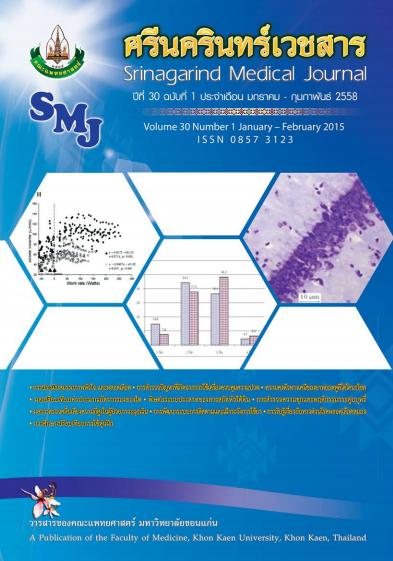Development of High-Alert Drug Monitoring System in Srinagarind Hospital
Keywords:
high alert drug, adverse drug reaction monitoring, medication errorAbstract
Background and Objective: High-alert medications are drugs that bear a heightened risk of causing significant patient harm when they are used in error. The process of preventing medication errors and monitoring adverse drug reaction or effectiveness should be encouraged. Therefore, the new high alert drug monitoring system in Srinagarind hospital were developed and assessed this system’s effectiveness.
Methods: This study was a prospective descriptive study, designed and developed “The form of high alert drugs monitoring” 21 items. Data was collected from patients admitted at Semi-ICU Medicine ward, Srinagarind hospital, during February 1st 2013 to July 31st 2013 and analyzed by Microsoft excel 2007.
Results: One hundred and seventy-eight orders of high alert drugs were prescribed by physicians. The most of frequently prescribed drugs were norepinephine injection (23.06%), followed by potassium chloride injection (15.73%). Drug related problems were mostly found in norepinephine injection (21.28%) and amiodarone (14.89%), respectively. Medication errors was occurred in 2.81%, of which the highest incidence was found in vancomycin (40%). The proportion of advert drug reactions in this study was 23.60%. In addition, the most cases of advert drug reaction were norepinephine (21.43%), amiodarone (14.29%) and dopamine injection (14.29%), respectively. This study showed that the recording forms can help decrease major drug events, including medication errors and advert drug reaction.
Conclusions: The high alert drug monitoring form is an essential tool which can provide the safety of medication use in patients.




